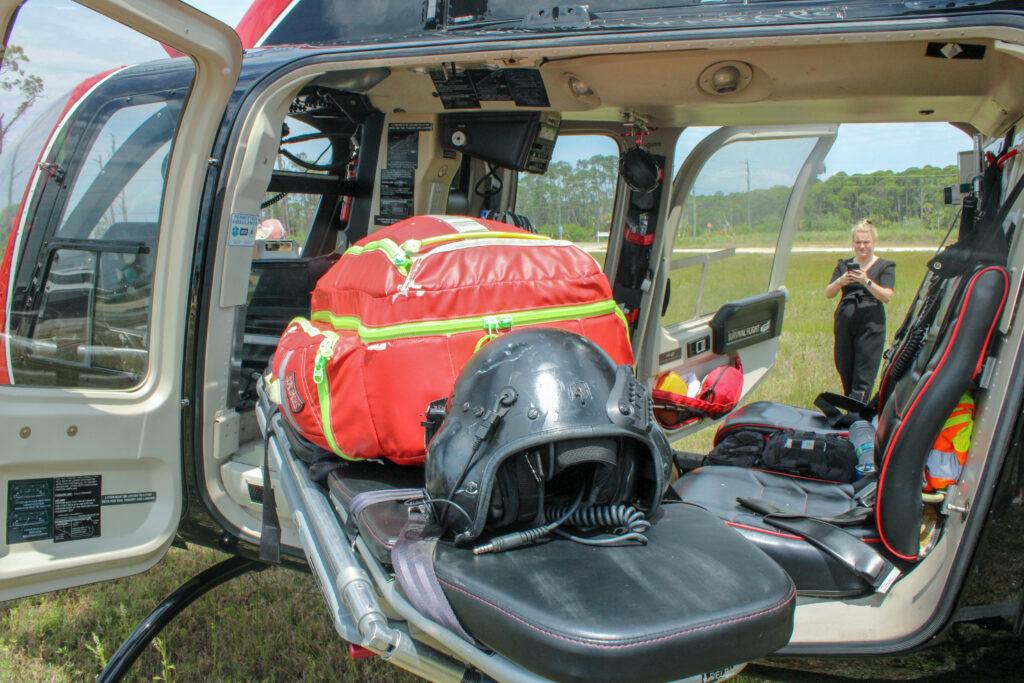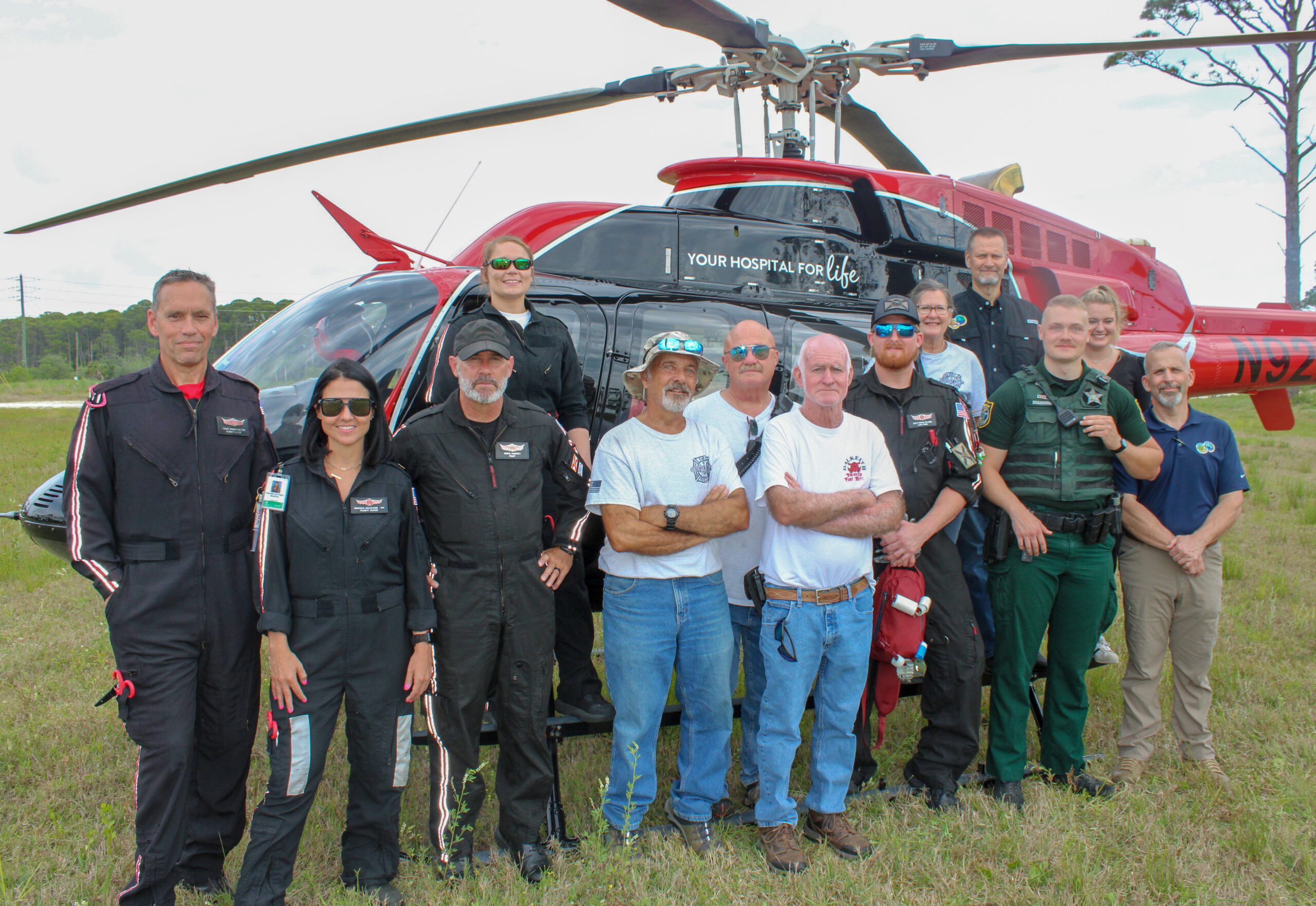Air ambulance make non-emergency visit

The Survival Flight air ambulance crew from Blountstown landed near Salinas Park last month and took their sweet time doing it.
There was no hurry, no emergency, just a pleasant opportunity on April 18 to demonstrate to firefighters and first responders from South Gulf Rescue, the Dalkeith Volunteer Fire Department and the Gulf County Sheriff’s Office how things ought to work when it’s a matter of precious seconds of response time in a region that includes Gulf, Franklin, Calhoun, Liberty, Leon, Gadsden and Jackson counties.
Amanda McKenzie, a flight nurse on the Bell 407 helicopter, lead the demonstration, explaining that a trip typically includes 18 to 20 minutes of flight time, and two or three minutes of landing time, depending on the winds.
The launch will usually be ordered as soon as ambulance crews know a helicopter will be needed, and they’re at the landing strip with the victim – often of trauma, a stroke or a heart attack – before the copter has landed.
“They can cancel,” said McKenzie.
It then takes minutes to whisk the patient away to Shands, usually for burns, or to a trauma center in Pensacola or Tallahassee, all the while the copter staff able to administer blood transfusions if needed.
The most common impediment, she said, is that anything less than a 1,000-foot cloud ceiling, or three miles of visibility can ground as many as 30 percent of possible flights and make them undoable.
The trip was one of two landing zone classes that are offered each year, addressing safety and protocols so that when the time comes, everyone is ready.


Meet the Editor
David Adlerstein, The Apalachicola Times’ digital editor, started with the news outlet in January 2002 as a reporter.
Prior to then, David Adlerstein began as a newspaperman with a small Boston weekly, after graduating magna cum laude from Brandeis University in Waltham, Massachusetts. He later edited the weekly Bellville Times, and as business reporter for the daily Marion Star, both not far from his hometown of Columbus, Ohio.
In 1995, he moved to South Florida, and worked as a business reporter and editor of Medical Business newspaper. In Jan. 2002, he began with the Apalachicola Times, first as reporter and later as editor, and in Oct. 2020, also began editing the Port St. Joe Star.